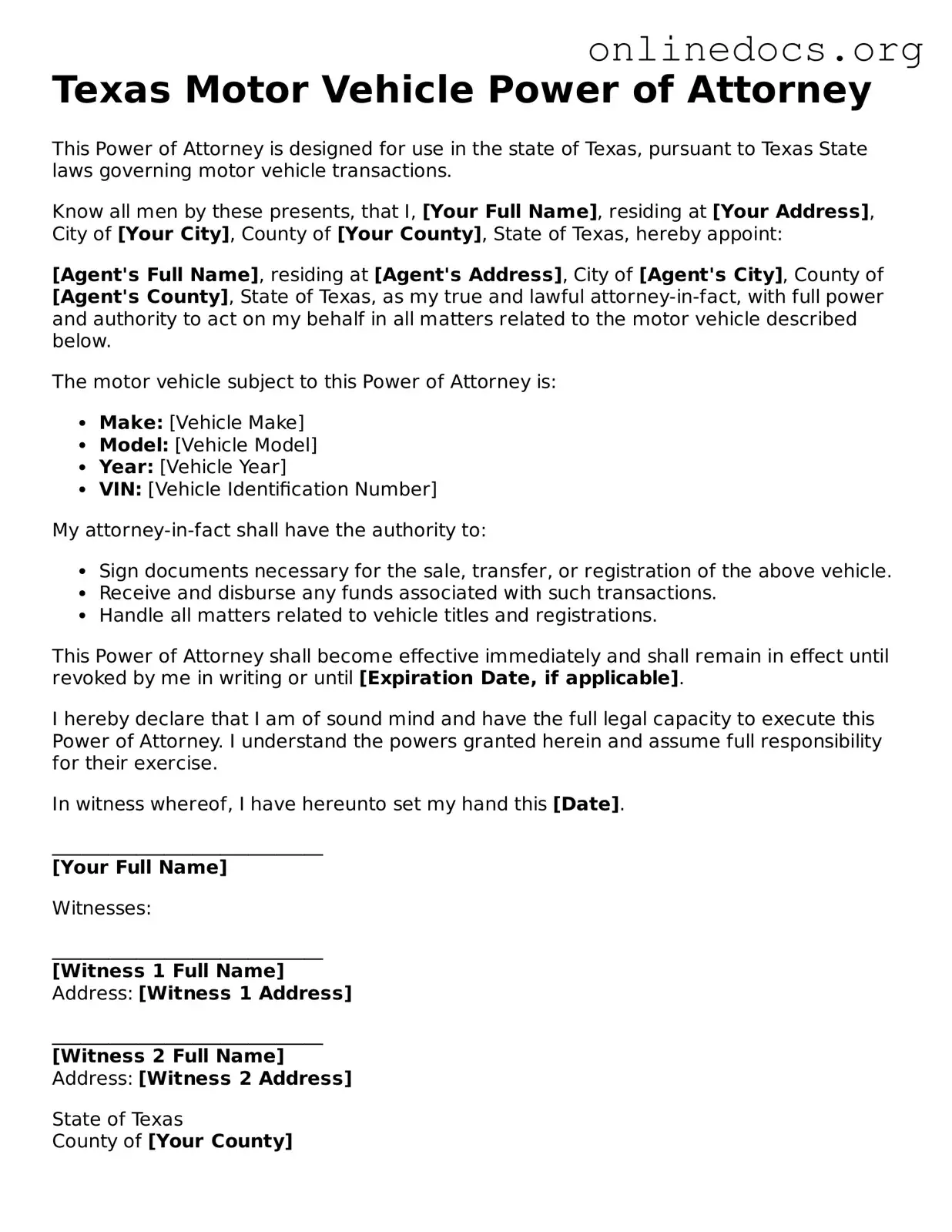The Texas Motor Vehicle Power of Attorney form is similar to the General Power of Attorney. Both documents allow one person to grant another the authority to act on their behalf. The General Power of Attorney can cover a wide range of decisions, including financial and legal matters. In contrast, the Motor Vehicle Power of Attorney is specifically tailored for vehicle-related transactions. This specificity makes it easier for individuals to handle car sales, registrations, and title transfers without needing to grant broader powers.
Another document that shares similarities is the Durable Power of Attorney. Like the General Power of Attorney, the Durable Power of Attorney allows someone to make decisions for another person. The key difference lies in its durability; it remains effective even if the principal becomes incapacitated. This is important for individuals who want to ensure that their vehicle matters are handled even if they are unable to manage them personally due to health issues.
The Limited Power of Attorney is also akin to the Texas Motor Vehicle Power of Attorney. This document allows the principal to specify the exact powers granted to the agent. While the Motor Vehicle Power of Attorney is limited to vehicle-related transactions, the Limited Power of Attorney can be tailored for various specific tasks. This makes it a flexible option for individuals who want to delegate authority for particular matters without giving up control over other aspects of their lives.
The Vehicle Title Transfer Form is another related document. While it does not grant power to another person, it serves a similar purpose in facilitating vehicle transactions. This form is used to officially transfer ownership of a vehicle from one party to another. Both documents streamline the process of handling vehicle ownership, but the Vehicle Title Transfer Form is more about the act of transferring ownership rather than granting authority.
The Bill of Sale is yet another document that resembles the Motor Vehicle Power of Attorney. A Bill of Sale serves as a record of the transaction between the buyer and seller of a vehicle. It provides proof of the sale and details about the vehicle. While the Motor Vehicle Power of Attorney allows someone to act on behalf of another in the sale, the Bill of Sale formalizes the transaction itself. Both documents are essential in the vehicle transfer process, but they serve different functions.
The California Boat Bill of Sale form is a crucial document for anyone buying or selling a boat in California. It serves as a legal record of the transaction, protecting both the buyer's and the seller's interests. If you're ready to proceed with your boat sale, fill out the form by clicking the button below or visit All Templates PDF for more information.
Finally, the Consent to Transfer Registration form is similar in that it is used in the context of vehicle ownership. This form is often required when a vehicle's registration needs to be transferred to a new owner. While the Texas Motor Vehicle Power of Attorney allows someone to manage the transfer process, the Consent to Transfer Registration specifically addresses the legalities of changing the registration. Together, these documents ensure that vehicle ownership is properly documented and transferred.
